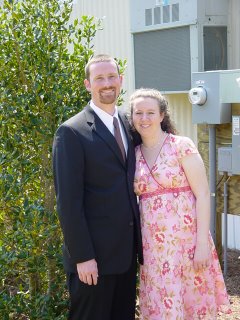Christ and Education
Listen to Francis Schaeffer's words on this issue:
"If truth is one, that is if truth has unity, then Christian education means understanding, and being excited by, the associations between the disciplines and showing how these associations are rooted in the Creator's existence. I do not know if you know what you are hearing or not. It is a flaming fire. It is gorgeous if you understand what we have in the teaching and revelation of God. If we are going to have really a Christian education, it means understanding truth is not a series of isolated subjects but there are associations, and the associations are rooted in nothing less than the existence of the Creator Himself."
"True Christian education is not a negative thing; it is not a matter of isolating the student from the full scope of knowledge. Isolating the student from large sections of human knowledge is not the basis of a Christian education. Rather it is giving him or her the framework or total truth, rooted in the Creator's existence and in the Bible's teaching, so that in each step of the formal learning process the student will understand what is true and what is false and why it is true or false. It is not isolating students from human knowledge. It is teaching them in a framework of the total Biblical teaching, beginning with the tremendous central thing, that in the beginning God created the heavens and the earth. It is teaching in this framework, so that on their own level, as they are introduced to all of human knowledge, they are not introduced in the midst of a vacuum, but they are taught each step along the way why what they are hearing is either true or false. That is true education. The student, then, is an educated person. I just say in passing, John Harvard understood that when he founded Harvard University. It was founded with this whole thing in mind. The student, then if he is taught this way, is an educated person, who will have the tools to keep learning and enjoy learning throughout all of life. Is life dull? How can it be dull? No, a true education, a Christian education, is more than the negative, though that is there. It is giving the tools in the opening the doors to all human knowledge, in the Christian framework so they will know what is truth and what is untruth, so they can keep learning as long as they live, and they can enjoy, they can really enjoy, the whole wrestling through field after field of knowledge. That is what an educated person is. "
This is an awesome statement by Schaeffer. As Christians, we should not fear to approach and interact with any and every field of knowledge. Why? Because we have real truth. Not only is our truth real, it is complete. I don't think we grasp and really hold on to the magnitude of the concept of creation. If God created, then in reality He is the creator of all fields of knowledge. This, in truth, is not the way in which most education is done. Typically, a student picks a field of knowledge. He then proceeds to concentrate on this area and becomes specialized in this field. Once education is completed, we have produced a scientist (for example) who can rest from his quest for knowledge because he has become an "expert." Unfortunately, many lack the ability to integrate science into all other fields of knowledge. So, what we are left with are mere facts that lack real points of contact. Knowledge is random. But, we, as Christians, know that God is ordered. How do we know that? Look at creation. It is complex, yet shows many signs of order. How about special revelation? For instance, the Bible is God's special revelation to us. It has been given in the form of language, which is by its very nature ordered. Sentences have structure. Words have meaning. So, it is apparent, at least to me, that God reveals truth in an ordered way. Since this is true, all knowledge is from God and is ordered in Him. Therefore, a Christian scientist should feel just as comfortable making a statement about a historical event or history in general. But, the fact of the matter is that our society (intentionally or unintentionally) is creating individuals with an incomplete education with insufficient knowledge, which makes them truncated people. Unless we realize that God's truth effects all knowledge, we will continue to produce partial people who lack true education. As Schaeffer says, our framework of knowledge (creation, fall, redemption) allows us to understand all history or science or mathematics or literature. This truth should do, at least, two things for the learner. First, it should make education a joyful pursuit and an act of worship because we are plumbing the depths of the God who holds all knowledge and truth in His being. So in our learning, we are in actuality plumbing the depths of God Himself. In seeking knowledge, we are seeking the Creator of that knowledge. Second, it should produce life-long students. Since we are able to proceed with confidence into all fields of knowledge, we ought to go headlong toward knowledge and education.
The rest of the above referenced article can be found here. For a powerful and fuller explanation of Schaeffer's thoughts, read Nancy Pearcey's Total Truth.


